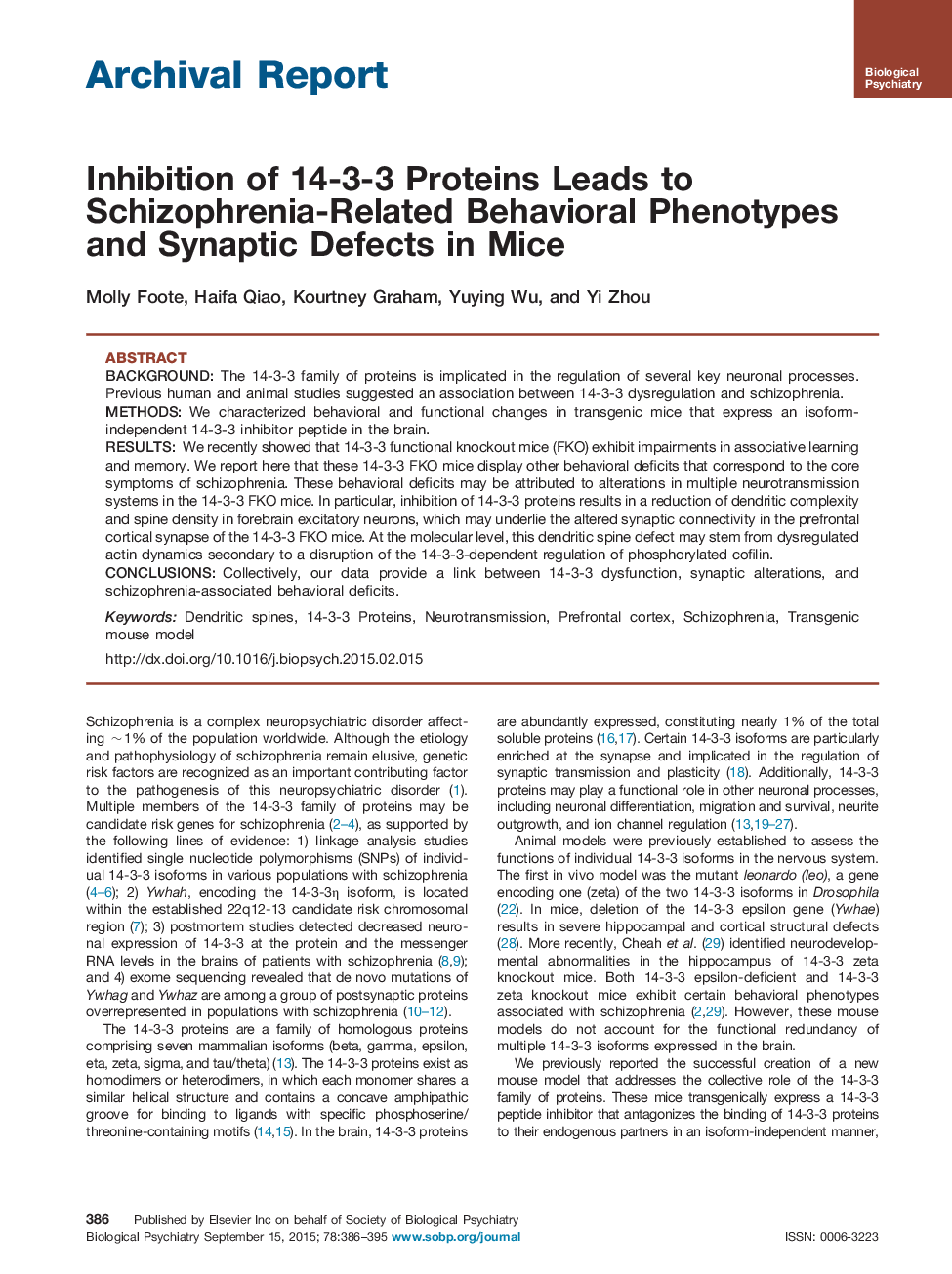| کد مقاله | کد نشریه | سال انتشار | مقاله انگلیسی | نسخه تمام متن |
|---|---|---|---|---|
| 4177139 | 1276393 | 2015 | 10 صفحه PDF | دانلود رایگان |
BackgroundThe 14-3-3 family of proteins is implicated in the regulation of several key neuronal processes. Previous human and animal studies suggested an association between 14-3-3 dysregulation and schizophrenia.MethodsWe characterized behavioral and functional changes in transgenic mice that express an isoform-independent 14-3-3 inhibitor peptide in the brain.ResultsWe recently showed that 14-3-3 functional knockout mice (FKO) exhibit impairments in associative learning and memory. We report here that these 14-3-3 FKO mice display other behavioral deficits that correspond to the core symptoms of schizophrenia. These behavioral deficits may be attributed to alterations in multiple neurotransmission systems in the 14-3-3 FKO mice. In particular, inhibition of 14-3-3 proteins results in a reduction of dendritic complexity and spine density in forebrain excitatory neurons, which may underlie the altered synaptic connectivity in the prefrontal cortical synapse of the 14-3-3 FKO mice. At the molecular level, this dendritic spine defect may stem from dysregulated actin dynamics secondary to a disruption of the 14-3-3-dependent regulation of phosphorylated cofilin.ConclusionsCollectively, our data provide a link between 14-3-3 dysfunction, synaptic alterations, and schizophrenia-associated behavioral deficits.
Journal: Biological Psychiatry - Volume 78, Issue 6, 15 September 2015, Pages 386–395
